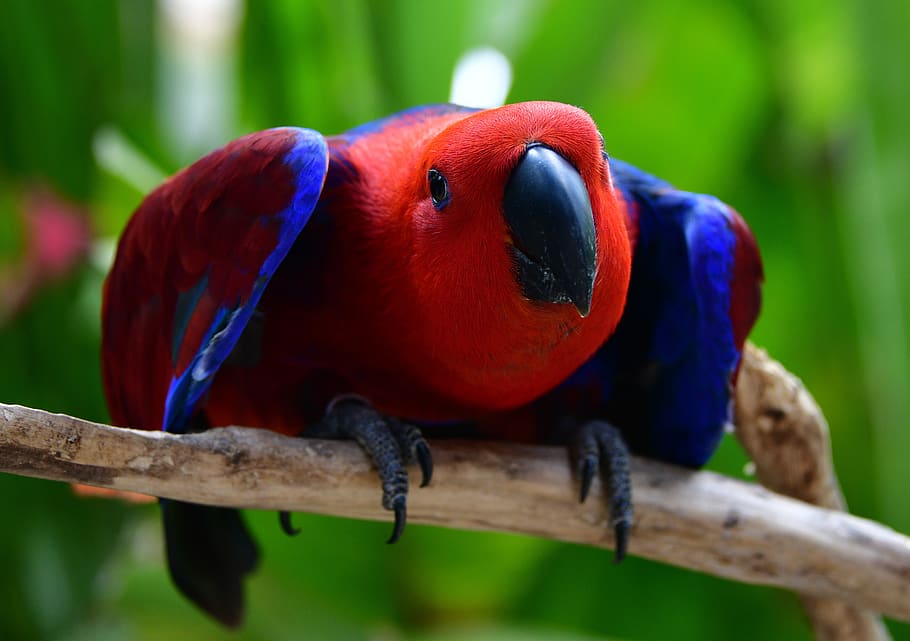Egg Binding in Birds: Causes, Symptoms, and Treatment
Egg binding is a common reproductive problem that can occur in female birds, especially pet birds. It refers to the condition where the bird is unable to expel the egg naturally, causing it to get stuck inside the reproductive tract. If left untreated, egg binding can lead to serious health issues, including tissue damage and even death. In this article, we will explore the causes, symptoms, and treatment options for egg binding in birds.
Causes of Egg Binding
Several factors can cause egg binding in female birds, including:
Low Calcium Levels
Low calcium levels, also known as hypocalcemia, can cause the uterine muscles to contract and prevent the bird from passing the egg.
Continuous Egg Laying
Birds that lay eggs frequently, without adequate rest periods in between, are at a higher risk of developing egg binding.
Low Temperatures
Low temperatures can cause the muscles to contract and make it difficult for the bird to pass the egg.
Genetics
Some breeds of birds may be genetically predisposed to egg binding.
Symptoms of Egg Binding
Egg binding can cause several symptoms in female birds, including:
Fluffed Up
The bird may appear fluffed up and lethargic, sitting on the bottom of the cage.
Straining
The bird may show signs of excessive straining or blood when attempting to pass the egg.
Inability to Pass Droppings
The bird may be unable to pass droppings, leading to excessive wetness.
Prolapse or Bleeding
The bird may experience prolapse or bleeding from the cloaca (vent/anus).
Abnormal Bulging
There may be abnormal bulging around the cloaca.
If you notice any of these symptoms in your female bird, it is essential to seek veterinary attention immediately.
Treatment of Egg Binding
Treatment for egg binding will depend on the severity of the condition. In some cases, the egg may need to be manually removed by a veterinarian. In other cases, less invasive methods may be used to help the bird pass the egg naturally. Here are some methods that can be used to treat egg binding in birds:
Hospital Cage
Placing the bird inside a hospital cage on a damp towel can help create steam and assist in the egg's passage. Ensure that the hospital cage is preheated before placing the bird inside.
Warm Bath
Bathing the bird in lukewarm water can also help relax the muscles and facilitate the egg's passage.
Heat Mat or Lamp
A heat mat or lamp can be used to maintain a temperature of 28-32 degrees Celsius and 60% humidity. Place a slightly dampened towel on the heated side of the box to create humidity or steam.
Vetafarm Spark
Orally administering a small amount of Vetafarm Spark with a syringe can help support the bird during times of stress.
Monitor
It is crucial to keep a close eye on the bird throughout the treatment process. If her condition deteriorates, contact your avian vet immediately.
Calcium Supplements
Providing the bird with access to calcium-rich foods like kale, broccoli, almonds, and yogurt, or supplements may help prevent egg binding.
Prevention of Egg Binding
Preventing egg binding in birds is essential to avoid the risk of serious health issues. Here are some tips to prevent egg binding in female birds:
Proper Nutrition
Providing your bird with a quality diet that includes calcium-rich foods can help prevent egg binding.
Rest Periods
Allowing your bird to have rest periods between egg-laying cycles can also help prevent egg binding.
Calcium Supplements
In some cases, your avian vet may recommend calcium supplements or injections to prevent egg binding.
Safe & Toxic Bird Foods
It is crucial to ensure that your bird's diet includes safe and nutritious foods. Some foods can be toxic to birds and should be avoided. Here is a list of safe and toxic bird foods:
Safe Bird Foods:
- Kale
- Broccoli
- Bok Choy
- Almonds
- Yogurt (in small amounts)
- Dried Figs
- Black-eyed Peas
- Oranges
Toxic Bird Foods:
- Avocado
- Chocolate
- Caffeine
- Alcohol
- Salt
- Onions and Garlic
- Fruit Pits and Seeds
- Rhubarb
It is essential to consult with your avian vet before introducing any new foods to your bird's diet.
Conclusion
Egg binding is a serious condition that can occur in female birds, leading to serious health issues if left untreated. It is important to be aware of the symptoms of egg binding and seek veterinary attention immediately if you suspect your bird may be affected. Preventive measures, including proper nutrition, rest periods, and calcium supplementation, can help reduce the risk of egg binding in female birds.
FAQs
Can male birds get egg bound?
No, only female birds have reproductive tracts capable of developing egg binding.
How common is egg binding in birds?
Egg binding is relatively common in pet birds, especially those that are continuous egg layers.
Can egg binding be fatal?
Yes, if left untreated, egg binding can lead to serious health issues, including tissue damage and death.
Can I prevent egg binding in my bird?
Yes, providing your bird with a quality diet, allowing for rest periods, and providing calcium supplementation can help prevent egg binding.
What should I do if I suspect my bird is egg bound?
Contact your avian vet immediately if you suspect your bird may be affected by egg binding. Prompt veterinary attention can help ensure the best possible outcome for your bird's health.

